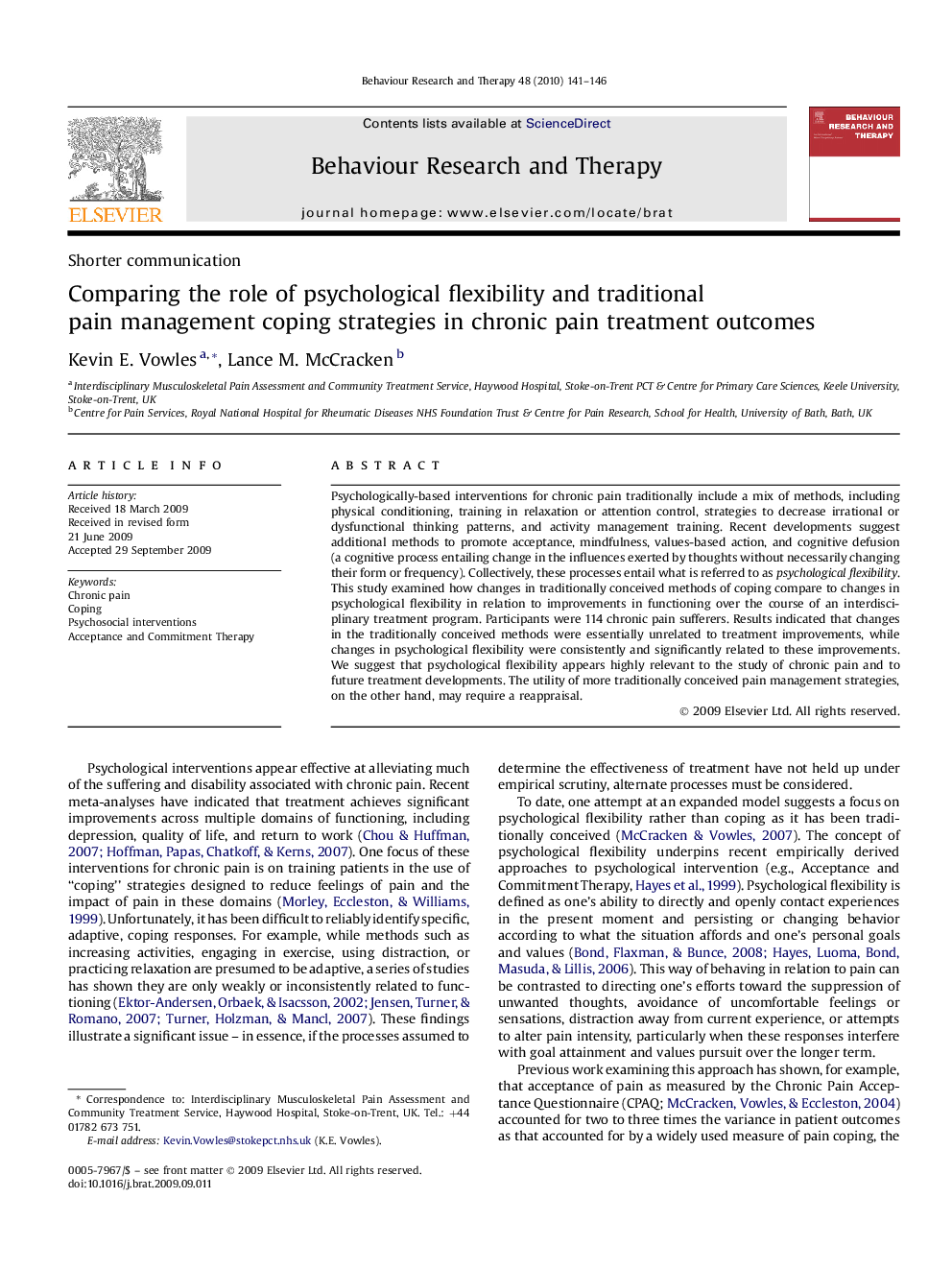| Article ID | Journal | Published Year | Pages | File Type |
|---|---|---|---|---|
| 902097 | Behaviour Research and Therapy | 2010 | 6 Pages |
Psychologically-based interventions for chronic pain traditionally include a mix of methods, including physical conditioning, training in relaxation or attention control, strategies to decrease irrational or dysfunctional thinking patterns, and activity management training. Recent developments suggest additional methods to promote acceptance, mindfulness, values-based action, and cognitive defusion (a cognitive process entailing change in the influences exerted by thoughts without necessarily changing their form or frequency). Collectively, these processes entail what is referred to as psychological flexibility. This study examined how changes in traditionally conceived methods of coping compare to changes in psychological flexibility in relation to improvements in functioning over the course of an interdisciplinary treatment program. Participants were 114 chronic pain sufferers. Results indicated that changes in the traditionally conceived methods were essentially unrelated to treatment improvements, while changes in psychological flexibility were consistently and significantly related to these improvements. We suggest that psychological flexibility appears highly relevant to the study of chronic pain and to future treatment developments. The utility of more traditionally conceived pain management strategies, on the other hand, may require a reappraisal.
